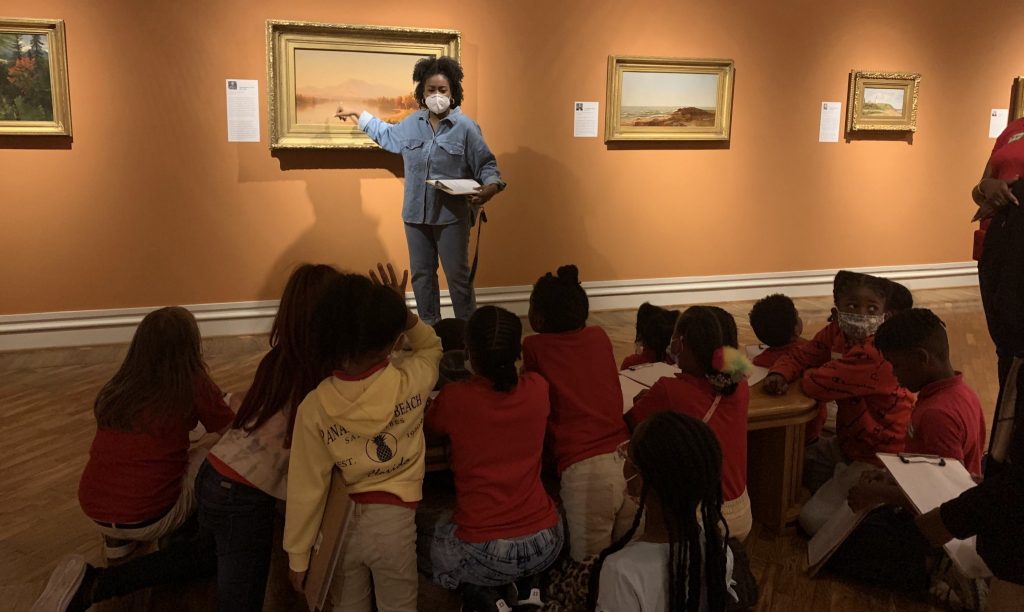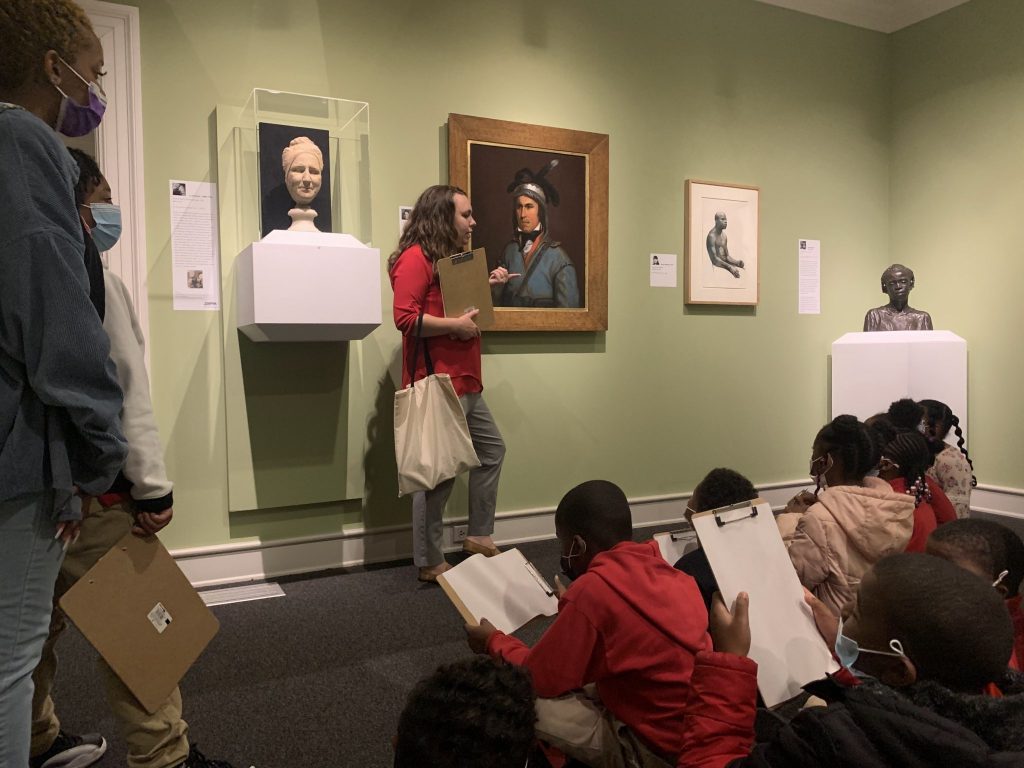By Dana Richie
The Columbus Museum embraces the charge that educational opportunities should be available to people of all ages.
They frequently host events such as school field trips and guided tours to connect the community to local history. To meet these needs, the museum expanded its community outreach coordinator position from part-time to full-time with the help of a Georgia Humanities SHARP (Sustaining the Humanities through the American Rescue Plan) grant. SHARP funding also supported the work of the museum’s academic programs manager.
By increasing the capacity of these two positions, staff members could devote more time and energy to developing exhibitions, aiding teachers, planning educational programming, and envisioning future community-oriented programs.
“The ability to meet people where they are is vital,” Director Marianne Richter said.
A significant portion of the SHARP funding was devoted to the curation and ongoing educational engagement with the “Journey Toward Justice: Civil Rights in the Chattahoochee Valley” exhibition, which relied upon the efforts of Imani Jones-Pugh, the community outreach coordinator, and Rachel Vogt, the academic programs manager.
While developing the exhibit, Jones-Pugh engaged with advisory groups, including a 25-person panel of civil rights movement activists, to create content and programming ideas. Jones-Pugh also worked closely with a filmmaker to produce a documentary to accompany the exhibition.

Courtesy of the Columbus Museum
Once the exhibit opened to the public, Jones-Pugh worked to connect with attendees of all ages. Director of Education and Engagement Lucy Kacir said that Jones-Pugh led small groups of students through the exhibit while “discussing the theme of resistance and how it has been used throughout history as part of school justice movements.”
“Without [her] support, we could not have served the number of students we did,” Richter said.
Academic Programs Manager Vogt also helped increase the reach of the Journey Toward Justice exhibit by managing school tours and developing resources that teachers could use before and after their museum visit.
Another significant portion of the SHARP funding was dedicated to developing an outreach program for incarcerated youth in Muscogee County. The museum established a relationship with the Georgia Department of Juvenile Justice, allowing Pugh-Jones to visit three facilities each month, serving approximately 75 youth during a 10-month process.
The program uses “collection objects to start discussions and spark creativity,” according to Richter. The activities are designed to help incarcerated youth build “visual literacy and expressive language skills,” according to Kacir.

Courtesy of the Columbus Museum
Richter emphasized that both staff roles have been critical to the success of museum programs and exhibits. For example, she said that for the Journey Toward Justice exhibit, the “success we had with tours: it’s back to the level of tours we had pre-pandemic. It’s incredible.”
Richter also mentioned the benefits of funding for the academic programs manager role: with increased support, Vogt was able to oversee the museum’s first annual Summer Teacher Institute, focusing on the exhibitions “Alma W. Thomas: Everything is Beautiful” and “Sand Unshaken: The Origin Story of Alma Thomas.” This program educated teachers about the life and work of the Columbus-born artist and culminated in the cooperative preparation of classroom-ready lesson plans that approach the content in a hands-on, multidisciplinary way.
The museum continues to sustain the momentum generated by these two staff members.
“The past few years have really brought home how important education is in actually connecting with our community,” Richter said. “With [staff] having more time here, it has enabled them to think bigger, plan more, and develop additional programs. It really made a huge difference.”
In December 2021, Georgia Humanities awarded more than $1.03 million in SHARP funding to 78 organizations across the state to support growth and recovery in response to the pandemic. Funding for the SHARP grant program was provided by the National Endowment for the Humanities (NEH) as part of the 2021 American Rescue Plan Act.

